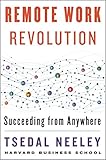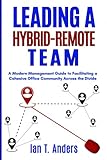Imagine waking up, brewing your favorite coffee, and starting your workday without a stressful commute. For millions, this is the reality of the digital economy, where remote work is no longer a perk but a paradigm shift. What does the future hold for these digital nomads and those aspiring to join their ranks? The future of remote job opportunities in a digital economy is bright, dynamic, and full of potential, driven by technological advancements, evolving work cultures, and a growing demand for flexible work arrangements.
The Expanding Landscape of Remote Work
The rise of remote work isn’t a new phenomenon, but the pandemic significantly accelerated its adoption. Companies worldwide were forced to embrace remote work models, and many discovered the benefits of increased productivity, reduced overhead costs, and access to a wider talent pool. This shift has fundamentally altered the way we think about work and has opened up a world of opportunities for individuals seeking flexible and location-independent careers.
Emerging Industries and Roles
The digital economy is constantly evolving, creating new industries and job roles that are perfectly suited for remote work. Fields like software development, digital marketing, data science, customer service, and online education are experiencing explosive growth, with many positions designed to be fully remote from the outset. This trend is expected to continue, as businesses increasingly recognize the advantages of leveraging a global talent pool and embracing flexible work models.
The Rise of the Gig Economy
The gig economy is another major driver of remote job opportunities. Platforms like Upwork, Fiverr, and Toptal connect freelancers with businesses seeking specialized skills for short-term projects or ongoing contracts. This allows individuals to build their own portfolio of clients and work on projects that align with their interests and expertise, all while enjoying the flexibility of remote work.
Navigating the Challenges of Remote Work
While the future of remote work is promising, it’s essential to acknowledge the challenges that come with this new way of working.
Maintaining Work-Life Balance
One of the most significant challenges is maintaining a healthy work-life balance. The lines between work and personal life can become blurred when your office is also your home. Establishing clear boundaries, setting dedicated work hours, and creating a designated workspace can help mitigate this challenge. “Balance is not something you find, it’s something you create,” as Jana Kingsford wisely said.
Building and Maintaining Relationships
Building and maintaining strong professional relationships can also be more challenging in a remote environment. Regular communication, virtual team-building activities, and occasional in-person gatherings can help foster a sense of community and connection among remote team members.
Ensuring Data Security and Privacy
Data security and privacy are paramount concerns in a digital economy. Remote workers must be vigilant about protecting sensitive information and adhering to company security protocols. Employers also have a responsibility to provide secure access to company resources and implement robust security measures to protect against cyber threats.
Preparing for the Future of Remote Work
How can individuals and businesses best prepare for the evolving landscape of remote work?
Upskilling and Reskilling
Continuous learning is crucial in the rapidly changing digital economy. Individuals should invest in upskilling and reskilling to acquire the in-demand skills needed for remote job opportunities. Platforms like Coursera, Udemy, and LinkedIn Learning offer a wealth of online courses and certifications that can help individuals stay ahead of the curve.
Embracing Technology
Technology is the backbone of the digital economy. Remote workers must be proficient in using various communication tools, project management software, and other digital platforms. Staying up-to-date with the latest technological advancements is essential for remaining competitive in the remote job market.
Cultivating Soft Skills
While technical skills are important, soft skills are equally valuable in a remote work environment. Communication, collaboration, time management, and problem-solving are essential skills that can help individuals thrive in remote roles.
The Future is Flexible
The future of remote job opportunities in a digital economy is bright and full of potential. By embracing the opportunities and addressing the challenges, individuals and businesses can unlock the full potential of remote work and create a more flexible, productive, and fulfilling work experience. The future of work isn’t just about where we work, but how we work, and remote work is paving the way for a more balanced and empowering future. As we move forward, embracing adaptability and a proactive approach to learning will be the keys to success in this dynamic and ever-evolving landscape. What steps will you take to shape your future in the remote work revolution?
 The Future of Remote Work Opportunities
The Future of Remote Work Opportunities
- Greene, Ali (Author)
- English (Publication Language)
- Review, Harvard Business (Author)
- English (Publication Language)
- Duffy, Jill (Author)
- English (Publication Language)
- Audible Audiobook
- Timothy Ferriss (Author) - Ray Porter (Narrator)
- Hardcover Book
- Neeley, Tsedal (Author)
- Amazon Kindle Edition
- Barrett, Robin (Author)
- Glazer, Robert (Author)
- English (Publication Language)
- Foroux, Darius (Author)
- English (Publication Language)
- Anders, Ian T. (Author)
- English (Publication Language)
Conclusion
The digital economy has irrevocably changed the employment landscape, opening up a world of possibilities for remote work. From emerging industries and the gig economy to the crucial need for upskilling and embracing technology, we’ve explored the multifaceted aspects of this evolving work style. Navigating the challenges of work-life balance, fostering relationships, and ensuring security are essential considerations for both individuals and organizations. The future of work is flexible, and by adapting to the changing environment, we can unlock the full potential of remote opportunities. Share your thoughts and experiences in the comments below and let’s discuss the future of remote work together! What excites you most about the possibilities of working remotely?











